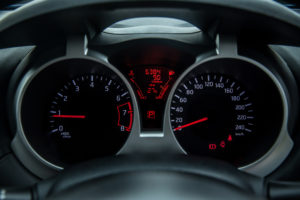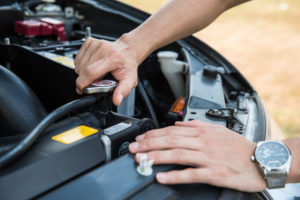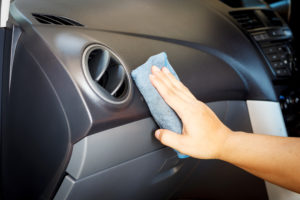
What am I liable for when leasing a car?
One of the most common questions we hear from first-time leasers is, What am I liable for when leasing a car? Leasing has a greater advantage over buying when it comes to liabilities. This is because your liability for a lease car is limited. You do not own the car and therefore you are not liable for taxing it. That is if the lease is a business or private contract hire agreement. There are some forms of lease where you are liable to tax the vehicle. You’re not liable for the resale value of the car or selling it on. Similarly, you are not liable for the purchase price of the vehicle. All of this is done by your lease provider.
So what am I liable for when leasing a car? Well, let’s take you through your liabilities as the leasee.
Up Front Costs
There are a variety of payments to be made for the use of your lease car.
Firstly, you are liable for paying an initial payment. This is much lower than a finance deposit and is usually anywhere between one monthly payment and 12. The beauty with an initial payment is the more you can afford to pay up-front, the less your monthly lease instalments will be.
You’ll also need to pay an administration fee to your lease broker or lease provider to cover the cost of registering the vehicle and setting up the lease for you.
The final up-front fee is for delivery of the car. At OSV we include driver delivery free of charge. However, some customers choose to purchase transporter delivery of their car. Read about the difference between driver delivery and transporter delivery here.
Other Payments
Then you will be expected to pay a monthly fee to your lease provider for use of the vehicle. The fee is pre-determined when you sign your lease contract and is made up of three things. Your lease fee is calculated based upon depreciation of the vehicle, rental fee for the car and tax.
There could well be some charges at the end of your lease too. These will only occur if you have broken the terms of your lease agreement and not taken the necessary actions you are liable for.
Mileage
 When you lease a car you will be liable for keeping within the mileage limits of the vehicle. During the negotiations and agreeing upon your lease you will be asked to commit to a mileage limit. This limit is then set and your monthly payments are decided as a result. Your lease provider will impose charges upon you if you return the car with a higher mileage than what had been previously agreed.
When you lease a car you will be liable for keeping within the mileage limits of the vehicle. During the negotiations and agreeing upon your lease you will be asked to commit to a mileage limit. This limit is then set and your monthly payments are decided as a result. Your lease provider will impose charges upon you if you return the car with a higher mileage than what had been previously agreed.
This is because the car will lose value with additional mileage and the finance company will need to be compensated for the loss of value to their asset (the car).
These charges are called an “excess mileage charge”. These are clearly stated in your lease agreement. The cost of these depends on the vehicle, so a small economy car could be 2 pence per mile and a luxury supercar could be a £1 or more per mile. Typically it’s around six to ten pence per mile.
Damage/wear and tear
You are liable for any accidental damage to the car. It is your responsibility to ensure that all damage to the vehicle is repaired. Whether it’s a cracked windscreen or a damaged bumper. Again this is because the lease company must ensure their asset is protected. If the car is damaged then it will lose value and you must be responsible for that. If the car is found to have damage at the end of the lease contract then you will face additional charges. It’s always best to repair any damage as soon as you notice it.
You will be covered by your insurance for damage to the car, however, you should weigh up whether it is worth claiming for small repairs. Your premiums will rise and you’ll still have to pay the excess. Most lease car drivers repair small damage without the insurance companies and save money on their premiums.
Your liability also stretches to wear and tear of the vehicle. Of course, elements of wear and tear will occur as you use the car, this is to be expected. However, if the car is returned with what is considered to be excessive wear and tear then you will be liable to be charged. Registered lease providers, like us here at OSV, commit to a fair wear and tear policy. This is governed by the BVRLA.
Maintenance

Regular vehicle maintenance is key to ensuring the car retains it’s value so as the leasee you are liable for ensuring all car checks and servicing are carried out on time. You can purchase a maintenance package for an additional monthly fee which means you’re covered for the costs of maintaining the vehicle. Depending on the package you opt for this may just include servicing the car. The packages vary in size and cost, the highest will include any items that aren’t covered by the warranty. So you’ll never have any nasty surprises.
Servicing
Servicing on a lease car must be done as per the manufacturer’s guidelines, and it is your responsibility to make sure you are aware of these, most lease companies also insist that servicing is carried out by a franchised dealer rather than an independent dealer, this is to ensure that the work is done to the required standard. Some lease companies do have penalties if you service their vehicle at an independent dealer, so always check. It also checks some of the exterior elements of the vehicle and under the bonnet. In addition, the interim service includes an oil and oil filter change. A full service covers all of the above plus much more. This is carried out at 12 months, or 12,000 miles. Whichever comes first.
Read more about what is included in an interim service and a full service here.
Insurance
I’m afraid your insurance does not come included with your lease package and you are liable for insuring yourself and the car. As the car is not owned by you, you will need to inform the insurance company of this. You will be liable for securing fully comprehensive insurance.
If you hold a fully comprehensive insurance policy you are covered for any repairs needed should your lease car be involved in an accident. It would be awful if you had to pay for a load of repairs on a car that you do not own. So, even though you might find reduced cover a cheaper alternative, it pays to be fully covered should the worse happen.
Read more about insuring a lease car in this article.
Other liabilities

You are also liable for any parking or speeding fines you incur during the course of your lease. You can read more about what happens in this instance here. You’ll also be required to make regular check-ups to the car yourself. You are liable for ensuring the vehicle has enough water, coolant and oil to function properly. Not only that, you are responsible for the tyre pressures and ensuring the tread on the tyres falls within the legal limit. Finally, you are also expected to keep the car clean and return it having been valet cleaned. All in all, your liabilities as a leasee are around ensuring the vehicle is well looked after in your care. Failure to do so can result in fines when you hand the car back at the end of your lease contract.
Conclusion
While you are liable for certain things when leasing a car, you are not liable for things like selling it on at the end of your lease. In short, if you purchased a vehicle you would be liable for all of the above and much more. Driving is a joy and if you get to swan around in a shiny new car it’s well worth the responsibilities.


Leasing is best than buying you must choose your favorite car and most important thing about leasing is you didn’t pay tax for that car
Self-driving succeed during the passage of time and you have explained through post it perfect scenario.
nowadays new technology introduced in a market of automobile self-drive cars in future the idea will be 100% successful and there is also made a test drive to check how it works.
No mention of GAP insurance for lease car. Is this because there is no risk to the lessee?
Hi there John, thank you for your query. When leasing a car, you’re typically responsible for maintaining the vehicle in good condition and adhering to mileage limits. However, GAP insurance can be an essential consideration, especially if the leased vehicle is stolen or totaled. While the lessor may have coverage, GAP insurance can help cover the “gap” between what you owe on the lease and the actual cash value of the vehicle, ensuring you’re not left with a significant financial burden.